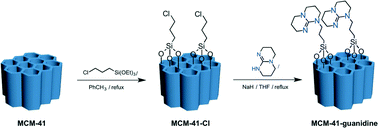Heterogeneous basic catalysts for biodiesel production
Abstract
Biodiesel is one the main biofuels used as an alternative to fossil sources. It is mainly produced through the transesterification of oils and fats with methanol, under acid, basic or enzymatic catalysis. Today, the majority of the biodiesel production processes employ homogeneous base catalysts, such as NaOH or NaOCH3, which require expeditious purification procedures and yield significant amounts of waste. This review covers recent achievements in the field of basic heterogeneous catalysts for biodiesel production, focusing on the main systems being employed, their advantages and disadvantages. The present drawbacks and future challenges on basic heterogeneous catalytic systems for biodiesel production are also addressed in the concluding remarks.


 Please wait while we load your content...
Please wait while we load your content...